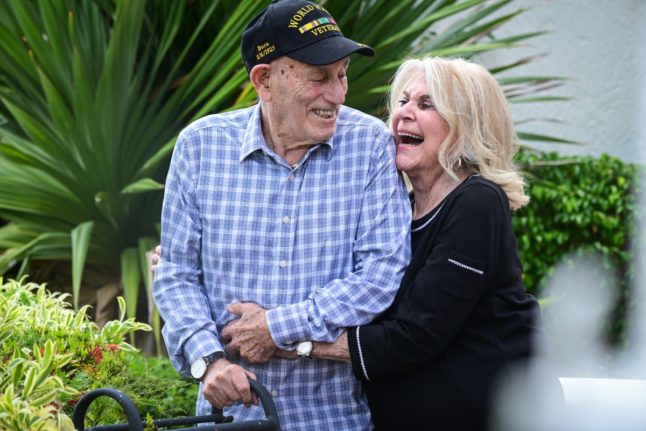Welcome to The Local’s “Americans in France” monthly newsletter for members, featuring all the news and practical information you need as an American resident, visitor or second-home owner in France. You can sign up to receive it directly to your inbox before we publish it online via the link below.
Hello Americans in France,
As March draws to a close and we get ready to set our clocks one hour forward, workers across France are looking forward to a nice, long weekend over the Easter holiday.
If you are visiting or travelling during the Easter weekend, beware of possible store closures and altered hours on Sunday and Monday. Unlike some of its European neighbours, Good Friday is not a holiday in most of France, with the exception of the historic Alsace-Lorraine region.
There are a few changes that motorists in France should be aware of in the next month.
The first is that you will no longer have to display the insurance green card (not to be confused with the American permanent resident card) in your windshield. Displaying the carte verte had been a requirement for over 40 years in France, but starting in April it will no longer be necessary, as law enforcement can simply look up your insurance information using an online system.
The second is related to the long-postponed contrôle technique for motorbikes, tricycles and quadricycles. This has been pushed back several times over the last nine years, but it will finally be phased in starting mid-April.
The third is that France has given the licence exchange and driving documentation website – previously ANTS – a new name. It’s now called ‘France Titres’ and we have a guide with all the different admin-related procedures you can do on it.
And for the last road-related topic for this edition of the newsletter: there’s another common question Americans tend to ask after moving to France; do I need a special certification to drive a stick shift?
While automatics are becoming more popular in France, manual transmission cars are also quite common on the roads and at rental agencies. As for the answer to that question, it depends a bit whether you are here as a tourist, as well as whether or not you come from a state with a licence-swap agreement.
Next up: tax season.
Luckily, Americans living in abroad automatically qualify for a two-month extension in reporting for US taxes (meaning you have until June 17th to file your US tax return).
As explained by tax expert, Jonathan Hadida: “There are two ways Americans in France are able to avoid double taxation – via foreign income exclusion or the foreign tax credit”. When choosing between the two, you will want to weigh whether or not you need taxable income in the US (in order to contribute to an IRA, for example).
You should also keep in mind that the FBAR (Foreign Bank Account Report) deadline is April 15th – though if you miss the April deadline you can qualify for an automatic extension to October 15th.
As the IRS reminds us – if you have any foreign bank accounts “whose aggregate value exceeded $10,000 at any time during 2023” then don’t forget to file your FBAR.
When it comes to your French taxes, the online portal will open on April 11th, and then you will have between 6-8 weeks to file.
From misunderstanding your tax residency to forgetting to report your US bank accounts, there are a few common mistakes Americans make when it comes to taxes in France – we’ve put together a list of the most common ones.
Aside from possible errors, there are some tax breaks and advantages you may be able to qualify for as an American resident in France, such as setting up an electric car charging station at your home or hiring a cleaner or professional nanny.
As always, we have our ongoing ‘Americans in France’ survey open and available for you to fill out to let us know the topics you would like to see covered. You can also give helpful tips (the ones you wish you had known beforehand) for other Americans looking to move to France.
And of course feel free to get in touch or leave a comment. You can reach me at [email protected]




 Please whitelist us to continue reading.
Please whitelist us to continue reading.
Member comments